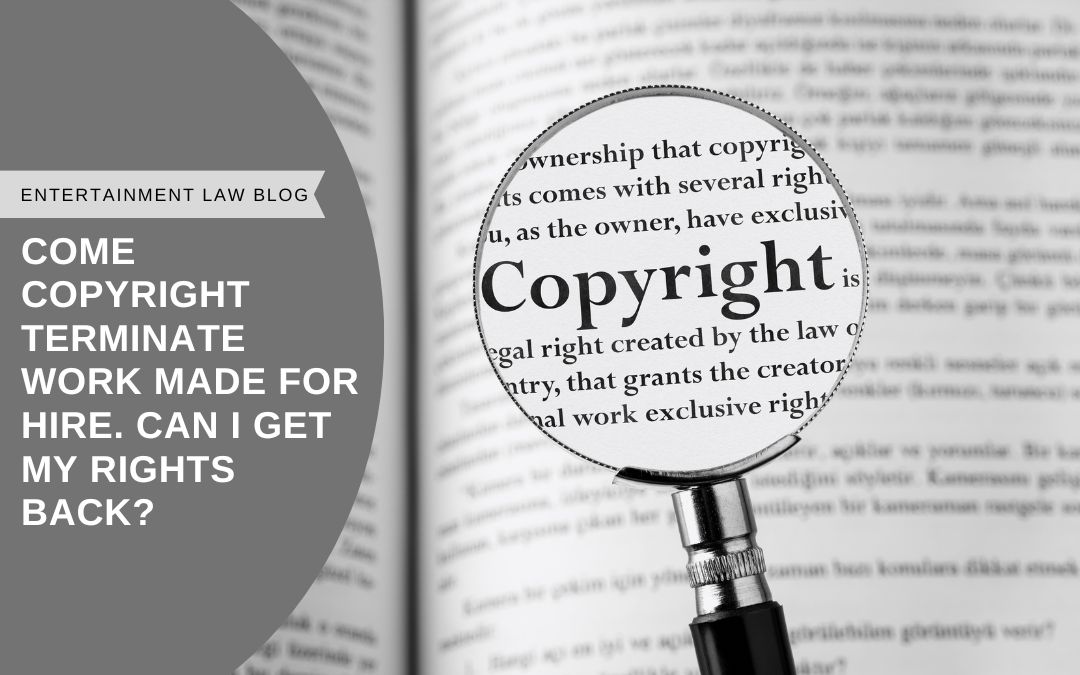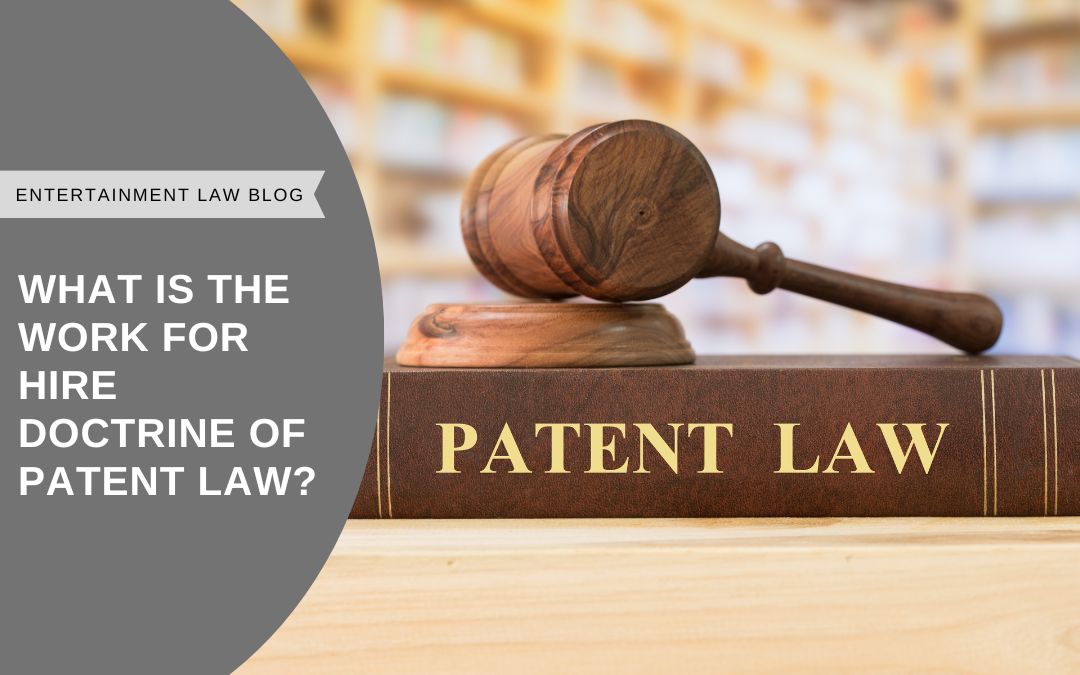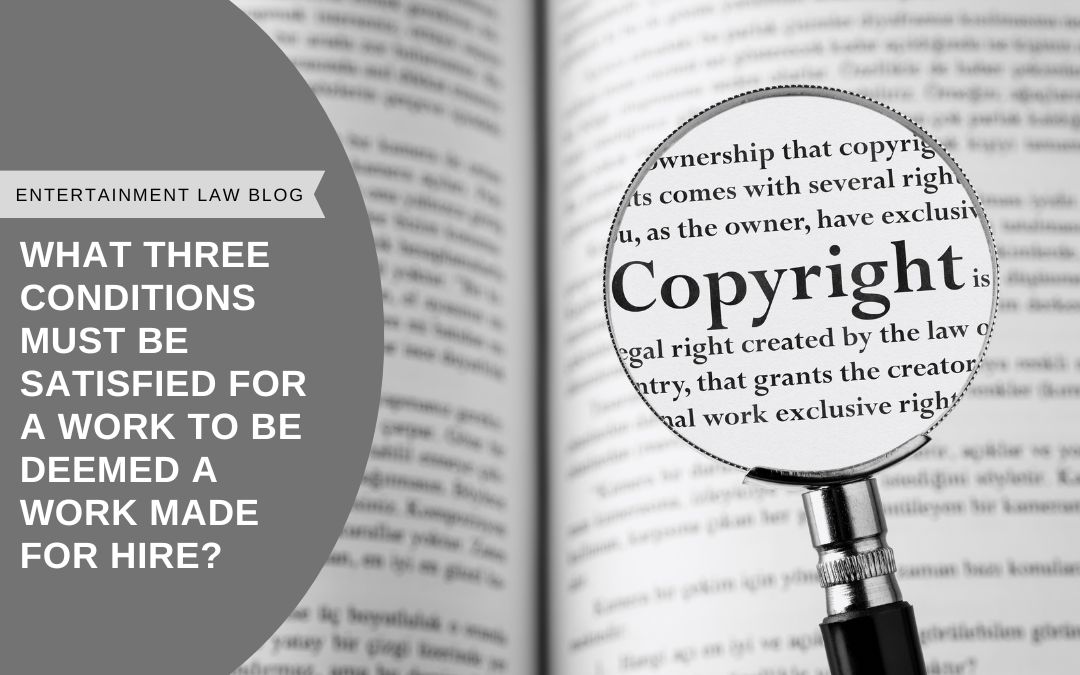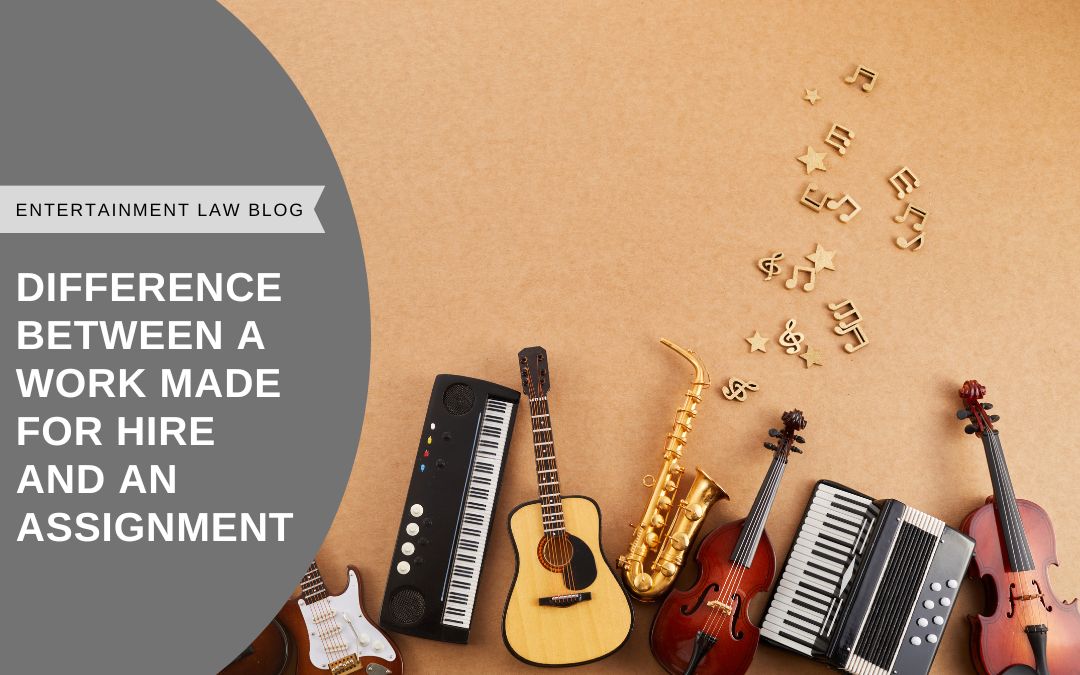
by designonetest | Jun 23, 2023 | Entertainment Law
The termination rights provided by copyright law generally do not apply to works made for hire. Since the hiring party becomes the legal author and owner of the work, the termination rights granted to authors under copyright law do not extend to works created as part...

by designonetest | Jun 23, 2023 | Entertainment Law
The work for hire doctrine in patent law differs from copyright law. In patent law, the work for hire doctrine states that an employer generally owns the rights to an invention created by an employee within the scope of their employment. Patents are generally not...

by designonetest | Jun 23, 2023 | Entertainment Law
Work for hire agreements grant employers broad rights and control over the creative work, there are certain limitations. Not all creative works fall under the category of work made for hire. Generally, works created by independent contractors or employees outside the...

by designonetest | Jun 23, 2023 | Entertainment Law
Typically, creators of works for hire do not receive royalties since they do not retain copyright ownership. However, there may be instances where a work for hire agreement includes specific provisions for royalty payments or additional compensation beyond the initial...

by designonetest | Jun 23, 2023 | Entertainment Law
According to copyright laws of the United States, to be considered a work made for hire, three conditions must be satisfied: (1) the work must be created by an employee within the scope of their employment, (2) the work must fall within one of the specific categories...

by designonetest | Jun 23, 2023 | Entertainment Law
In the music industry, a work for hire agreement is commonly used when artists, composers, or session musicians are hired to create original music. Under this agreement, the hiring party, such as a music producer or a record label, owns the copyright to the music,...








